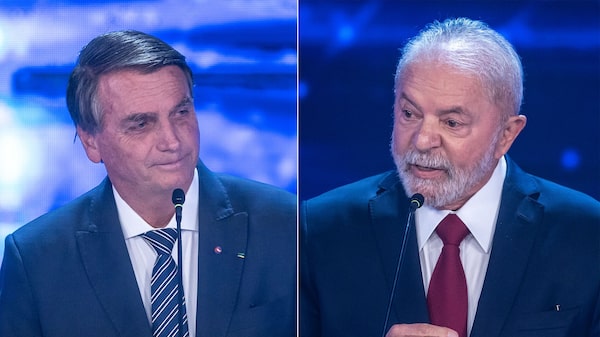Bloomberg — For years, President Jair Bolsonaro has drawn global criticism for his handling of Brazil’s environmental matters. But it hasn’t stopped a group of rich Brazilian landowners from bankrolling his re-election bid.
The biggest donors to Bolsonaro’s campaign ahead of the Oct. 2 election come mainly from the country’s wealthy agribusiness community. Some, like his main backer Oscar Luiz Cervi, own farms as big as Austin, Texas. Others sell farm machinery, seeds or meat.
Together, they account for the majority of the 22.2 million reais ($4.1 million) the president got from over 250,000 donations, most consisting of small amounts from individuals, a Bloomberg analysis of campaign finance filings shows. By comparison, Luiz Inacio Lula da Silva, who currently holds a commanding lead in polls, has raised less than 1 million reais in similar types of donations.
“Farmers back Bolsonaro en masse because they’ve been almost historically persecuted due to the environmental issue in Brazil,” said Jose Carlos Hausknecht, a partner at consultancy MB Agro. “Even when they wanted to do the right thing, they always end up being connected to deforestation.”
Read more on Brazil’s presidential elections:
Individually, Bolsonaro’s biggest backer among farmers is Cervi, who handed out 1 million reais. His company, Cervi Agro, was created in 1983 in the city of Coxim, Mato Grosso do Sul, a state that’s now one of the nation’s key producers of grains but that’s seen a spike in deforestation. Back in 2013, he and his brother planted about 80,000 hectares (308.9 square miles) of soybeans and corn, according to a motion filed by a local politician.
Other donors include Odilio Balbinotti, the owner of Grupo ATTO, a company that sells seeds to over 1.5 million hectares of soybeans per year, Celso Gomes do Santos, a rancher who in September gave Bolsonaro holy anointing oil as a gift and predicted a first round win in the election, and Gilson Berneck, the owner of a firm that sells wood panels in over 60 countries.
Cervi, Balbinotti, Gomes dos Santos and a representative for Bolsonaro’s campaign didn’t reply to messages seeking comment. A representative for Berneck said in an e-mailed statement donations were legal and transparent.
Bolsonaro has sparked global outcry from governments to Hollywood celebrities alike over his handling of environmental matters, particularly when it comes to the Amazon. His defiant stance led Norway and Germany to suspend donations to a fund dedicated to preserving the rain forest. The European Union also halted the reopening for imported products from BRF SA, Brazil’s largest chicken exporter because of the concerns, people familiar with the matter said. Negotiations will only resume after presidential elections, they say.
To be fair, the reputational damage hasn’t hurt trade. Agricultural exports are on track to set a record of $140 billion this year and revenues are at an all-time-high amid strong commodity prices.
Conservatives
Farmers are also a historically conservative segment of Brazil’s population, one which echoes Bolsonaro’s rhetoric of defending family values and religious faith. “Their profile is very similar to the US Midwest farmers,” said Marcos Jank, a global agribusiness professor at Insper.
None of Bolsonaro’s wealthy farmer backers are household names in Brazil’s business community. But they are part of a sector that all told, accounts for more than a quarter of the country’s economy, according to Cepea, a research arm at Sao Paulo University.
Corporate donations were banned in 2015 after a massive corruption probe uncovered contributions, legal and illegal, in exchange for political favors. Most of campaign financing is now done through public funds, even though donations from individuals are growing.
Bolsonaro and his proposals “are the best option for Brazil,” said the representative for Gilson Berneck, who donated 150,000 reais.
Read more on Bloomberg.com



